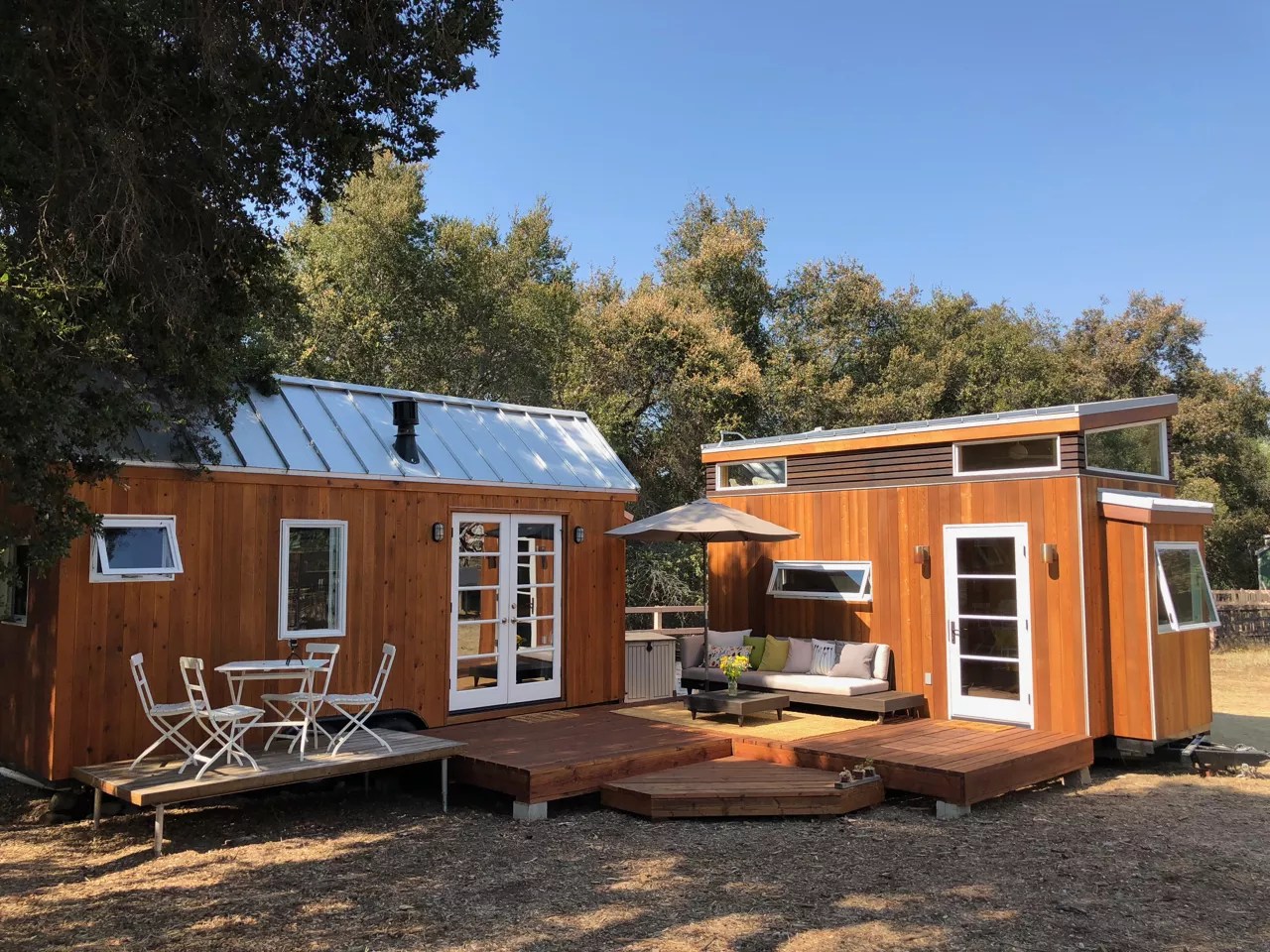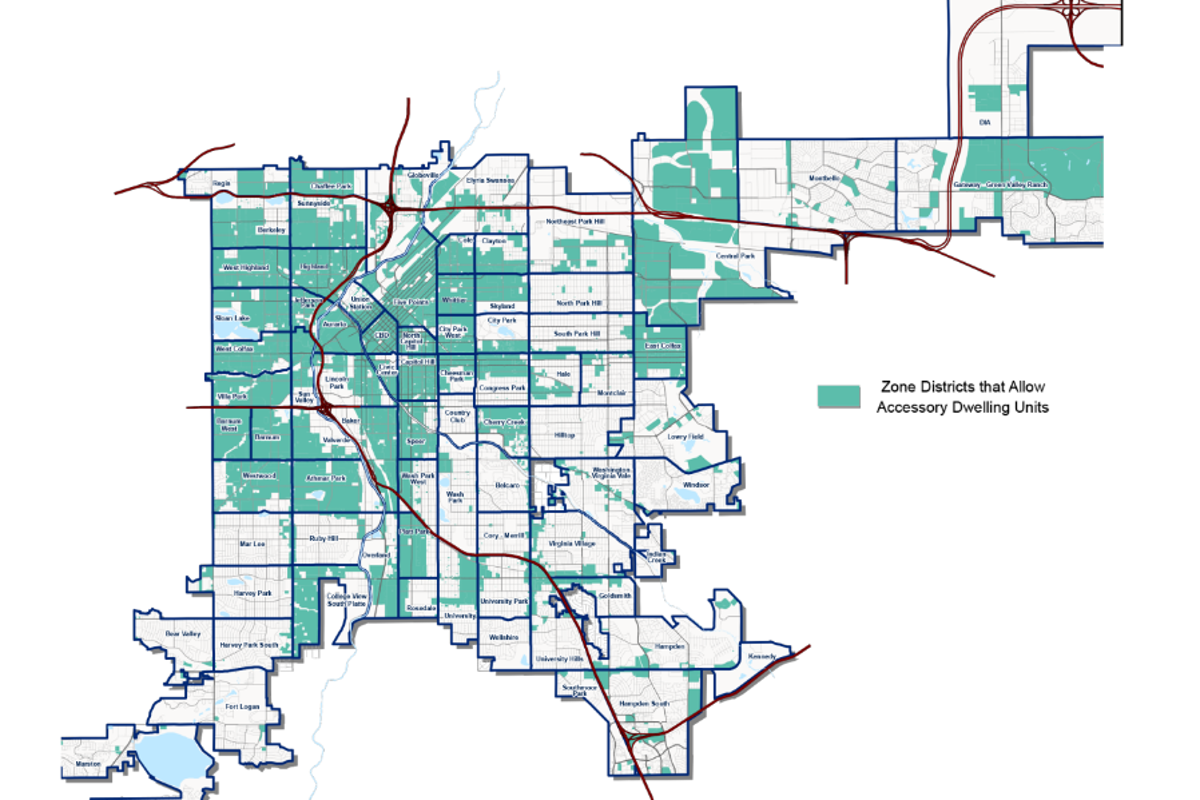
Flickr/Nicolás Boullosa

Audio By Carbonatix
A citywide rezoning proposal that would allow accessory dwelling units (ADUs) in all residential areas will start moving through Denver City Council again after first coming up in March – but it’s not expected to be up for adoption until November.
“There are people who want accessory dwelling units on their property, and right now it’s a patchwork,” District 10 Councilman Chris Hinds, the bill’s main sponsor, said at a virtual town hall on Wednesday, August 21. “It’s as complicated as there might be a home on a block that can build an ADU and another on that block that can’t.”
Also called “mother-in-law suites” or “granny flats” because they offer a way for multiple generations to live on a single property, an ADU “has its own kitchen, bath and sleeping area, but is not considered a separate property that could be sold on its own,” according to the city Community Planning and Development department.
“They can be built as a free-standing structure in the backyard, could be built above a garage, could be an addition built onto the main home, or could be a converted space within the main home, such as an attic or a basement,” the city’s definition reads.
For aging family members who want to pass on their Denver properties to their kids, ADUs can be cheap alternatives to renting apartments or buying a house. They also offer homeowners extra income by renting them out.
“The ADUs can actually help families stay on the property,” Justin Montgomery, a senior city planner, said at the town hall. “As property values increase, families can use the ADU as an extra source of income and help stabilize their income to stay on the property.”
In March, the City Council Budget & Policy committee heard a presentation on citywide rezoning that would allow ADUs in every residential part of Denver, cutting down a lengthy and expensive process for residents who want to build an extra living unit on their property. The proposal, introduced by Hinds and sponsored by councilmembers Darrell Watson and Sarah Parady, went under a public review period from April to June and has sat idle since.
“It’s the right thing to do, for us to basically get government out the way,” Hinds said on Wednesday. “We don’t have to have this layer of bureaucracy. We’re getting rid of some of our zoning to code to make it a little easier and more transparent.”
The Denver Planning Board is scheduled to hold a public hearing on the rezoning proposal on September 4. After that, the City Council Land Use, Transportation and Infrastructure Committee is expected to consider the proposal in October before going in front of the full city council in November.
About 35 percent of Denver’s land area allows ADU through local zoning laws, according to a presentation during a March city council meeting. An online city map shows where ADUs are allowed, which is mostly concentrated close to downtown in neighborhoods like Highland, Westwood and City Park West. Patches of ADU-friendly zoning can be found farther from downtown, however, in areas like Central Park, Green Valley Ranch and College View.

A map shows where Denver currently allows ADUs, with most of the ADU-friendly areas being closer to downtown. A new proposal would allow ADUs citywide.
Courtesy of the City of Denver
From 2010 to November 2023, the City of Denver permitted 560 ADUs, mostly in central, northwest and south-central Denver, the city council presentation added.
Hinds noted that most of these were built by people who could afford a consultant to help them navigate the tricky permitting process.
“Many times, someone who wants to build an ADU has to hire a consultant who’s an expert in zoning and also an expert in the rezoning process,” he said during the town hall. “Most of the people who have applied for ADUs in the last several years are more affluent, and that’s not okay. We should have the ability to have ADUs throughout the city.”
ADUs are only allowed in areas that are zoned residential, but about 36 percent of Denver’s land area is zoned residential and still doesn’t allow ADUs, according to the city. A swath of these neighborhoods banning ADUs runs across Denver’s south and east sides, from Harvey Park to Washington Park to Montbello.
A resident living in these neighborhoods can build an ADU by applying to rezone their property – but applying for this includes a $1,000 fee and takes around four to six months, according to the city. In recent years, about 30 to 50 percent of rezoning applications in Denver were for individuals trying to build an ADU, which accounts for around 25 to forty rezonings a year.
The expectation with the rezoning is that Denver residents will build a few dozen more ADUs than average each year and create “gentle density,” Hinds explained. He doesn’t think that ADUs will overrun Denver, however.
“When we look at other cities that have changed their regulations to allow for more ADUs, there isn’t this massive swarm of ADUs,” he added. “If we pass this, will there be a million ADUs in the city? If Denver is anything like the cities that have done this, the answer is no, and that’s because of the cost.”
At recent town halls focused on affordability held by the mayor’s office, residents in neighborhoods that allow ADUs have complained to Mayor Mike Johnston about the cost and lengthy permitting times to build an ADU. Nita Gonzales, the daughter of iconic Chicano activist Rodolfo “Corky” Gonzales, said that an ADU will be the only thing that keeps her in Denver, but she can’t afford to build it.
The proposal doesn’t address the cost of ADUs, but Johnston promised cheaper ADUs through his proposed half-cent sales tax ballot initiative, which would raise $10 million a year to build cost-controlled housing. Johnston’s initiative, set to go in front of Denver voters in the November election, would fund ADUs if they create housing for families living off 30 to 80 percent of the area median income, or between $35,000 and $93,000 a year for a family of three, according to the mayor’s office.